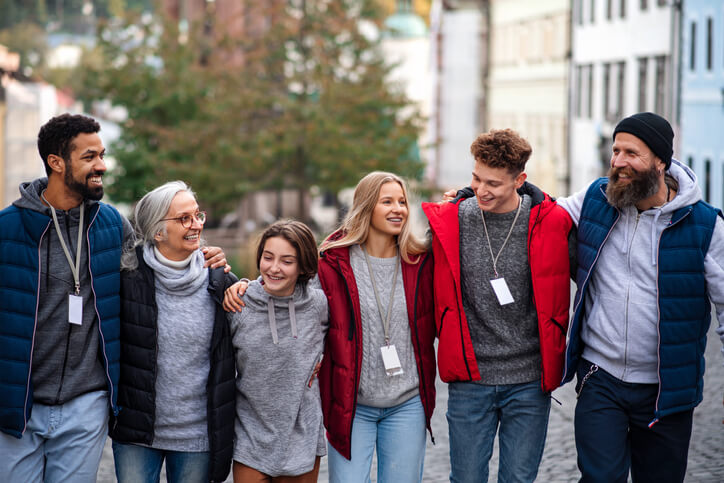
As a community service worker, you will be responsible for providing non-judgemental support to individuals, families, and groups from a variety of backgrounds who are facing various life challenges. If you’re considering a career in this field, you may consider yourself to be rather non-judgemental and understanding but all community service professionals must confront their unconscious biases in order to offer the best possible care. Keep reading to learn about bias, what it might look like, and how to break free from it throughout your community service career.
What Is Bias?
Bias is a preference for one thing over another. Since each person is born, they are overtly and covertly inundated with ideas about the world around them that may cause an unfair preference for a certain kind of person over others. Unconscious bias manifests in a variety of ways without us even noticing. Though all of us are endowed with the ability to make snap judgements as a survival mechanism. In a community service context, it’s important to recognize that our personal biases don’t align with reality. In fact, when you’re able to audit your biases, you’ll discover that most of the subliminal messages you’ve internalized about the world and people are false.

Common Types Of Bias
See if you can detect signs of the following biases in your current worldview. If any biased patterns do show up during your reflection, try not to be too hard on yourself. Remember that we all have biases and they actually play a role in normal human cognition. Knowing our biases is simply a tool for becoming more aware, effectobe professionals.
Confirmation Bias: This bias occurs when we seek out and use only information that suits our current worldview and beliefs. For example, after community service worker training, you may notice this when researching a demographic with whom you will be working. There may be a tendency to make assumptions and allow your research to be guided by that.
Perception Bias: This occurs when we perceive and judge others based on overly simplistic, typically false stereotypes that we associate with them usually based on how they look. This sort of bias encompasses racism, gender bias, ageism, and classism.
Status Quo Bias: This bias indicates a preference for the way things currently are. This is common as it provides a sense of safety for those who feel destabilized by change. As a community service worker, your clients will need you to meet them where they are and be flexible. So, if you’re frequently unsettled by the unconventional behavior or life choices of others this may be a bias to start working on. How do you go about working on biases?
How To Practice Transcend Your Biases After Community Service Worker Training
The first step to tackling unconscious bias is to audit your own thoughts in a way that is curious instead of judgemental. Treat this thought exercise as a mystery where you’re out to discover where your biases come from. Certainly, thorough research and support from fellow professionals will help you dismantle some unhelpful preconceived notions and make you a more socially aware and objective community service worker.

In addition, regular interaction with others from various different backgrounds (which comes with work experience), will help you realize on your own that you may have been wrong about some of the individuals you’re striving to help. Our community service worker courses provide students with the opportunity to get valuable work experience before they graduate in a 6-week internship.
Are you ready to earn your community service worker diploma?
Contact Discovery Community College to learn more!

